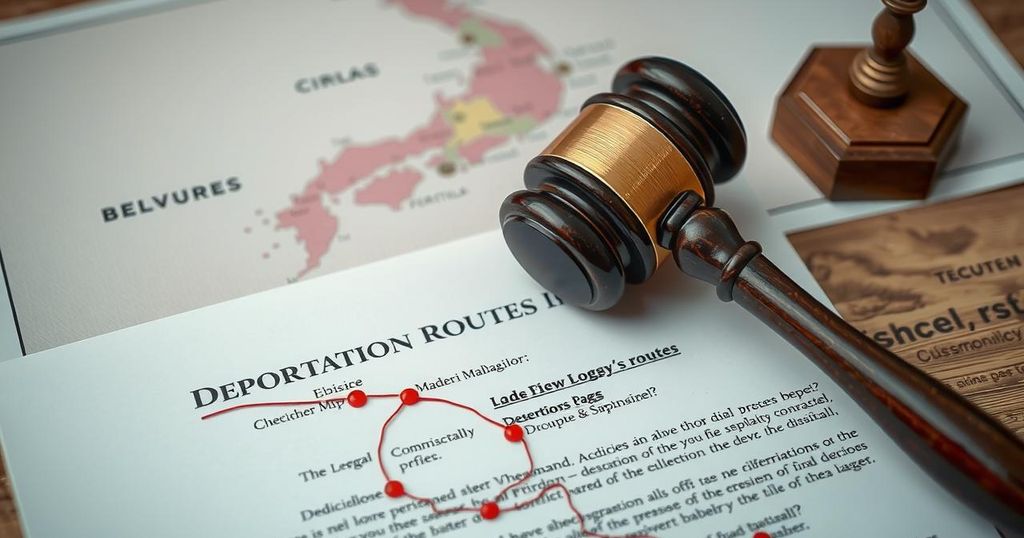Justice Department Resists Judge’s Request for Deportation Flight Details

The Justice Department is contesting a federal judge’s request for detailed information on deportation flights to El Salvador, claiming it infringes on executive powers. This legal standoff occurs amid tensions between the Trump administration and the judiciary regarding deportation policies. A judge temporarily blocked flight departures, prompting objections from the administration and statements from White House Press Secretary Leavitt criticizing judicial interventions.
The Justice Department is currently engaged in a legal confrontation with U.S. District Judge James E. Boasberg, who has requested additional information regarding deportation flights to El Salvador. This conflict arises amidst broader tensions between the Trump administration and the judiciary, particularly following a judge’s interim block of deportations under an 18th-century law. Press Secretary Karoline Leavitt criticized these judicial actions, asserting they hinder the administration’s efforts.
Judge Boasberg had mandated the administration to provide details about the flights, including logistics such as takeoff and landing times and the count of deported individuals. The Department argues that these inquiries infringe upon executive authority over national security and foreign policy, suggesting a potential claim of the “state secrets privilege” to withhold sensitive information.
In response to Boasberg’s order, which seeks clarity on whether the Trump administration disregarded his directive regarding the return of deportation flights, the Justice Department described the inquiries as “grave encroachments” upon executive powers. Furthermore, the judge has expressed surprise at claims that disclosing such information could compromise state secrets, questioning the administration’s public disclosures about the flights.
In invoking the Alien Enemies Act, President Trump has characterized the situation as an invasion by the Venezuelan gang Tren de Aragua, leading to the administration’s deportation actions. Judge Boasberg swiftly instructed that any flights carrying deportees should return to the U.S. upon learning that planes were already en route to El Salvador, where the deportees were reportedly received despite the court order.
Following a court hearing, the administration disclosed that two planes departed before Boasberg’s order, while a third flight afterwards reportedly did not violate the decree. Leavitt confirmed during a briefing that approximately 261 individuals were deported, including 137 under the controversial proclamation, emphasizing the administration’s commitment to its policy directives amidst ongoing judicial scrutiny.
The ongoing legal dispute between the Justice Department and Judge Boasberg highlights the contentious intersection of executive authority and judicial oversight concerning national security and deportation policies. As the Trump administration faces increasing challenges from the judiciary, tensions escalate over what is deemed acceptable governmental power and the protection of state secrets, with significant implications for future immigration enforcement actions.
Original Source: apnews.com







